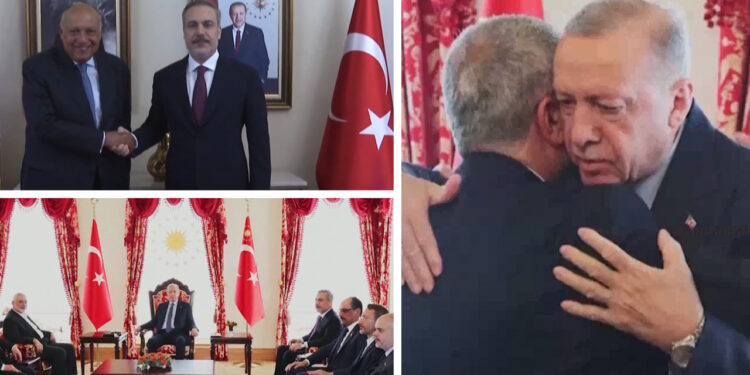In Istanbul, talks between Turkish President Erdoğan and Hamas leader Haniyeh focused on a ceasefire and aid in Gaza, conspicuously avoiding Turkey’s significant trade with Israel.

The meeting took place against the backdrop of Qatar’s reconsideration of its role as mediator for these discussions and Erdoğan’s assertion of Turkey’s commitment to Palestinian support in regional conflicts.
Erdoğan’s engagement highlights Turkey’s desire to have an influential role in the region, particularly in addressing the humanitarian crises and potential reconstruction efforts in Gaza.
Jasper Mortimer, reporting from Ankara for FRANCE 24, noted that despite Turkey’s strained ties, Erdoğan’s influence in Washington and London positions him as a key figure in ongoing regional discussions. However, Mortimer stressed, “No chance whatsoever for Turkey to mediate between Israel and Hamas due to the severed diplomatic relations with Israel.”
While Erdoğan and Haniyeh discussed potential post-conflict reconstruction in Gaza and the immediate humanitarian needs, there was a notable omission in their dialogue: discussions about Turkey’s significant trade relations with Israel. Despite Erdoğan’s vocal support for Palestine and recent comparisons of Hamas to Turkey’s National Forces during their independence struggle, the substantial ongoing trade between Turkey and Israel went unmentioned.
This silence comes amid journalistic revelations that Turkey continues its trade with Israel, including key supplies like cement, despite previous statements about trade restrictions. Journalist Metin Cihan detailed that ships regularly transport cement from Turkey to Israel, indicating ongoing economic ties that contrast with Erdoğan’s public political stance.
As Erdoğan seeks to assert a leadership role in Middle Eastern politics, the disconnect between his support for Palestinian issues and his country’s economic engagements with Israel continues to be a controversial issue in domestic politics.








Leave A Comment